Novelists are willing to explore the challenges and dilemmas of aging to create a wide array of interesting, mature protagonists and the issues they face at midlife and beyond. Our choices in contemporary fiction feature complex characters and encompass themes that are timeless and ageless, which can provide insight about the people we know or suggest what lies ahead for our future selves.
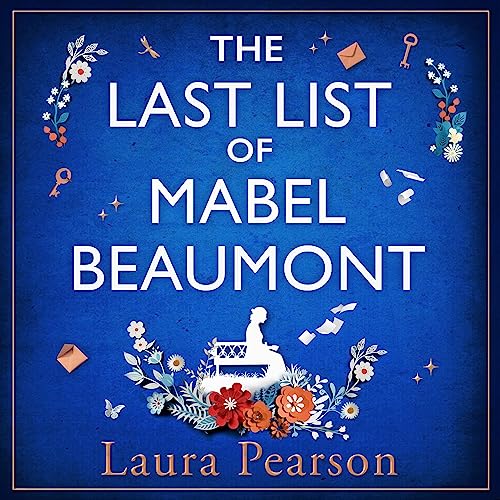 The Last List of Mabel Beaumont Posted in: Arts, Fiction, Friendships, Widows and Widowers, Women’s Lives
The Last List of Mabel Beaumont Posted in: Arts, Fiction, Friendships, Widows and Widowers, Women’s LivesBy Laura Pearson – Boldwood Books, 2023
Mabel Beaumont is an 86-year-old widow who has just lost her husband of 62 years. Arthur was a good man, who loved Mabel unconditionally. And though his wife was not affectionate, their marriage was one of mutual respect. Arthur habitually made lists for everything from shopping to love notes and died with an unfinished list: Find D. Mabel knows he means for her to find her long-lost, best friend, Dot. Mabel starts a list of her own. Soon, and very much out of character, Mabel makes friends of all ages, all of whom appear to have problems Mabel can solve (with a bit of meddling), and thus her list grows. Things rarely go as she hopes, but the women all offer their different skills to help reconnect Mabel and Dot. This relatable novel is told in Mabel’s voice, capturing the emotions, wisdom and regrets of an older woman dealing with loneliness, vulnerability and feelings of invisibility. She must get beyond what’s been holding her back all her life and live with joy, as she’s learned from her new friends. And now, nothing will get in her way. Put this one on your list.
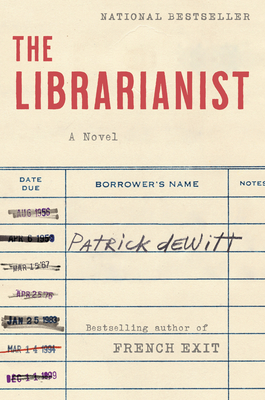 The Librarianist Posted in: Arts, Fiction, Friendships
The Librarianist Posted in: Arts, Fiction, FriendshipsBy Patrick deWitt – Ecco, 2023
Bob Comet is a retired librarian and lifelong introvert. We meet Bob in his 70s, living a solitary life in Portland, Oregon. He is divorced and has no close friends or family. His only real passion is books and he spends his days reading, rereading and organizing his vast collection.
When Bob encounters a confused older woman, lost in a market, he helps her find her way home, a senior center. Inspired by the sense of community at the center, he begins volunteering there. Through his interactions with the residents, Bob starts to heal from his past and find a new sense of purpose in his life. He also learns the importance of friendship, community and the power of stories.
This is a hopeful story about the power of books to connect us with others and to help us find meaning in our lives.
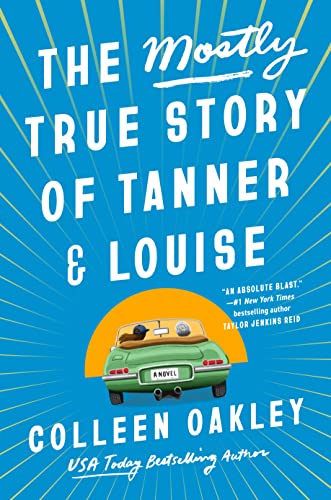 The Mostly True Story of Tanner and Louise Posted in: Arts, Fiction, Friendships
The Mostly True Story of Tanner and Louise Posted in: Arts, Fiction, FriendshipsBy Colleen Oakley – Berkeley, 2023
This heartwarming, funny novel tells the intergenerational tale of Tanner Quimby, a 21-year-old, adrift, college dropout struggling to find her place in the world, and 84-year-old Louise Wilt, recently incapacitated after a fall and hiding a secret past. Tanner’s parents ask her to move out at the same time Louise’s adult children realize their mother can’t manage alone. Tanner is hired as Louise’s caretaker, a position neither woman is happy about. Tanner is intelligent, funny and kind but struggles for self-esteem. Louise is a wise, compassionate woman with a snarky streak and criminal history. As they get to know each other—and try to outrun law enforcement in an interstate adventure—they learn they have more in common than they thought. They both regret their pasts and feel the need to tie up some loose ends. Theirs is a story about friendship, forgiveness and second chances, and it will stay with you long after you close the book.
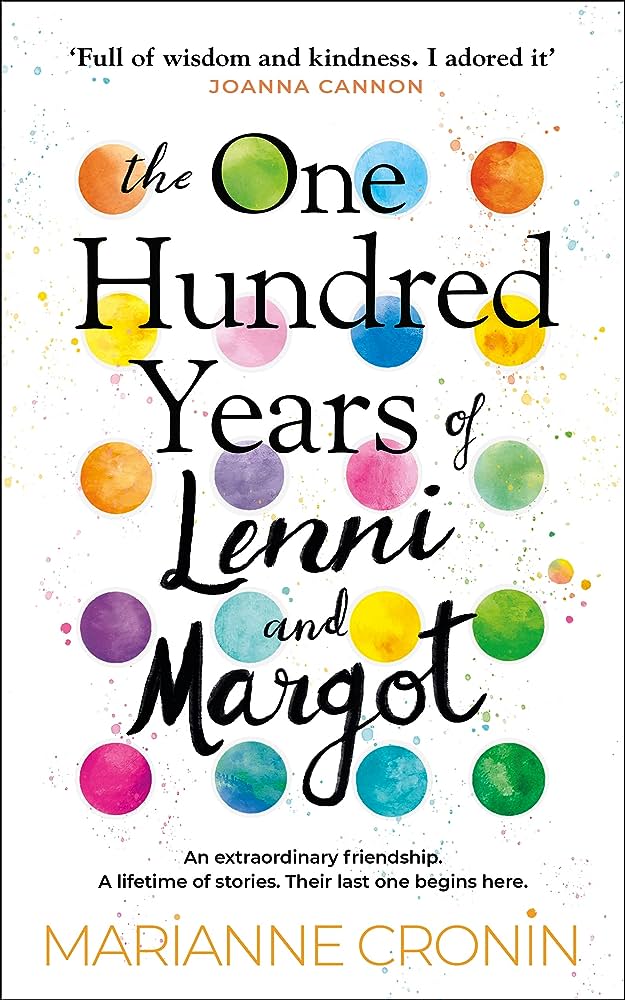 The One Hundred Years of Lenni and Margot Posted in: Arts, Fiction, Friendships, Mortality
The One Hundred Years of Lenni and Margot Posted in: Arts, Fiction, Friendships, MortalityBy Marianne Cronin – Harper 2021
Lenni and Margot are two terminally ill women who meet in a hospital art therapy class. Lenni is 17 with osteosarcoma, while Margot is 83 with leukemia. Both alone in the world, they realize that together they’ve lived 100 years. They make a pact to paint a series of portraits representing pivotal moments from their lives. These paintings become a way for them to reflect on their pasts, to come to terms with their mortality and to create a lasting legacy. Their story is told in alternating chapters from Lenni’s and Margot’s perspectives. Lenni is full of quirky observations and a gallows sense of humor. Margot’s chapters are more reflective as she shares her memories of a long and eventful life. The novel is packed with wisdom and compassion, reflecting the preciousness of life and the enduring human spirit. The end comes too soon.
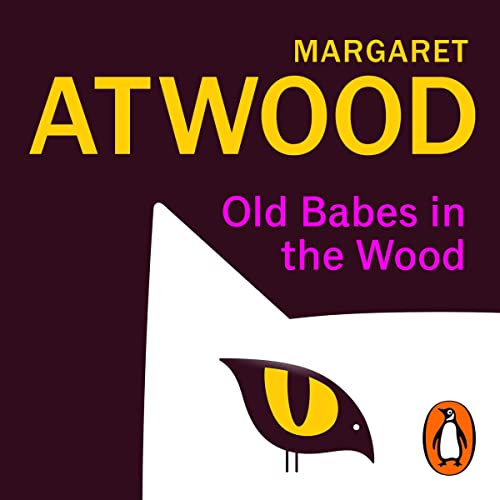 Old Babes in the Wood Posted in: Arts, Fiction, Short Story Collections
Old Babes in the Wood Posted in: Arts, Fiction, Short Story CollectionsBy Margaret Atwood — Doubleday, 2023
This is a short story collection by the renowned Canadian author and ardent feminist Margaret Atwood—you are likely familiar with her speculative fiction novel, The Handmaid’s Tale (1985). These new stories portray a world of unique characters, strange places and unusual situations, often set in the future. But while some may be set in a dystopia, these tales contain relevant themes: cancel culture, state control over women’s bodies, and pandemics, to name a few.
“The Age of Lead” tells the tale of a young woman named Iris, who is struggling to come to terms with her father’s death. The story is a moving and powerful exploration of grief, loss and the search for meaning. “My Evil Mother” is a dark, funny story about a young woman discovering that her mother is a witch. “The Sea King” is a beautifully written yarn about a woman who falls in love with a sea creature.
Older women narrate; some are widows and one is terminally ill. They explore memory, loss and commitment to family over time. Old Babes in the Wood is a masterful showcase of Atwood’s brilliant writing and storytelling abilities. It’s a must-read for any fan of the author or anyone who enjoys thought-provoking and imaginative fiction.
 The Vibrant Years Posted in: Arts, Families, Fiction
The Vibrant Years Posted in: Arts, Families, FictionBy Sonali Dev—Mindy’s Book Studio, 2022
This is a tale of three generations of unfulfilled women trying to discover their best selves and earn the respect they deserve. Bindu Desai has come into a million-dollar inheritance, one that threatens to expose a secret past. Nevertheless, the 65-year-old splurges on a fabulous condo and begins stirring up all sorts of mischief with several bachelors and the homeowners association. Bindu is close with her daughter-in-law, Aly, an underappreciated news anchor, who, at age 47, is competing for jobs with younger colleagues. Aly’s daughter, Cullie, is desperately trying to stay in the IT game when she pitches a half-baked idea of a dating app. When she pulls Bindu and Aly into her research, the results are pure comedy. Told by alternating narrators, this novel is life-affirming and fun. You’ll root for each woman to find what she so desires.
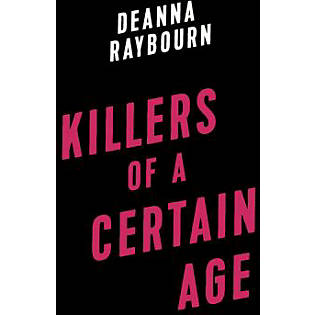 Killers of a Certain Age Posted in: Arts, Fiction, Mysteries and Thrillers
Killers of a Certain Age Posted in: Arts, Fiction, Mysteries and ThrillersBy Deanna Raybourn – Berkley, 2022
Touted as “Golden Girls meet James Bond,” this thriller opens with four women in their 60s celebrating retirement from The Museum, where they’ve worked for 40 years. Only, The Museum is a euphemism for a covert agency of elite, hired assassins, ridding the world of despicable war criminals, former Nazis, child traffickers and the like. It’s not a job that offers a retirement package, something the ladies—code name, the Sphinxes—realize when they become aware that former coworkers are trying to kill them.
Billie, Mary Alice, Helen and Natalie are exceedingly wise women who know too much, and The Museum leadership wants company secrets to die with these assassins. Naturally, the Sphinxes are not about to put down their weapons and go quietly into the night.
The story does an excellent job of showing how older women can be invisible, underestimated and often disrespected in the workplace. Having only each other and their experience to rely on, Billie, Mary Alice, Helen, and Natalie are about to show The Museum that they’ve messed with the wrong retirees.
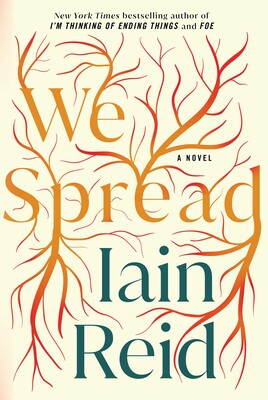 We Spread Posted in: Arts, Fiction, Mysteries and Thrillers
We Spread Posted in: Arts, Fiction, Mysteries and ThrillersBy Iain Reid – Gallery/Scout Press, 2022
Penny is an uninspired artist who has lived in the same apartment for decades. It’s full of her memories and collections. One day, to her surprise, she is moved to a long term care facility by her building manager after she suffers a few “incidents” attributed to her advanced years. She resists the idea that she and her late, longtime partner decided together to move there if one of them passed before the other. The facility is a private dwelling converted to accommodate six older residents in a family-like setting. At first, it is comforting, down to the chairs, bed and bedding, and the atmosphere inspires Penny to work. But she begins to sense that all is not right here: Can she trust the staff? Is she being drugged? As she begins to lose her grip on reality—why can’t she go outside or bathe alone?—Penny is left to wonder if what she is experiencing is just the result of aging or something far more nefarious. Her internal dialogue makes her so relatable. Who among us hasn’t been afraid that we’re losing our mind? Playing on our fears about death and dying, dementia and loss of control, the care home itself becomes villainous in its mystery. This is a psychological thriller that will pull you in.
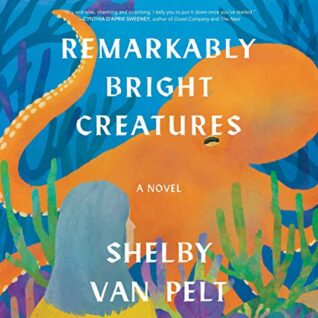 Remarkably Bright Creatures Posted in: Arts, Curmudgeons and Other Eccentric Characters, Families, Fiction
Remarkably Bright Creatures Posted in: Arts, Curmudgeons and Other Eccentric Characters, Families, FictionBy Shelby Van Pelt — Ecco, 2022
Tova is a widow in her 70s, coping with the mysterious loss of her teen son, Erik. To distract herself from her losses, Tova takes a job as a cleaner in the local aquarium, where she communes with the creatures housed there. She becomes particularly fond of Marcellus, an aging, giant Pacific octopus, rescued and rehabilitated there. She knows he escapes and visits the other tanks, sometimes for a social call and other times for a snack. Tova keeps his secrets; Marcellus is grateful. When 30-year-old Cameron arrives, looking for the father he never knew, he takes a part-time job at the aquarium, where Tova makes him into a passable employee. While Cam settles into what feels like home for the first time, the intelligent and erudite Marcellus pieces together what happened to Tova’s son. Can the old octopus give Tova the peace she seeks before he dies? Narrated by both Marcellus and Tova, this charming story will have you longing for a trip to the nearest aquarium.
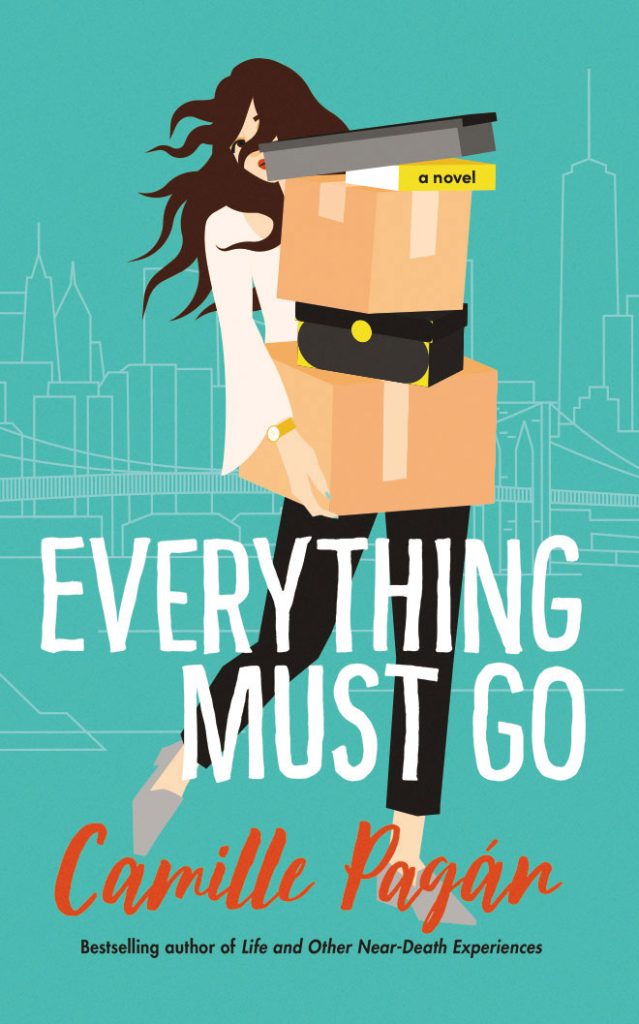 Everything Must Go Posted in: Arts, Families, Fiction
Everything Must Go Posted in: Arts, Families, FictionBy Camille Pagán — Lake Union Publishing, 2022
Laine Francis is a professional organizer who, since childhood, has wanted to put things in order. When Laine’s own life becomes her next organizing challenge, she faces it head-on. She returns to her family home in Brooklyn from Michigan. The timing is right; she feels she can no longer stay with the baby-averse husband adored by her family; she just bade farewell to her beloved dog. Both of Laine’s sisters confide that they’ve become concerned that their mother, Sally, is slipping into dementia. Sally’s been seen going to the store in a negligee, frequently forgetting significant things, making excuses and denying her decline. The sisters confront the possibility of losing their mother to Alzheimer’s and the immense, complex care that she’ll need going forward. It’s these heartfelt conversations that make the Francis sisters endearing. They are credible characters: kind, loving and afraid for their mother’s future. Sally enjoys having Laine nearby; this closeness brings significant unburdening between mother and daughter. Sally tells Laine the truth about her marriage, and Laine realizes she had made an incorrect assumption that she held against her mother for decades. Knowing the truth allows Laine to see her mother in a positive light. When Sally finally accepts that she’ll need help, it’s another successful outcome for our organizer.
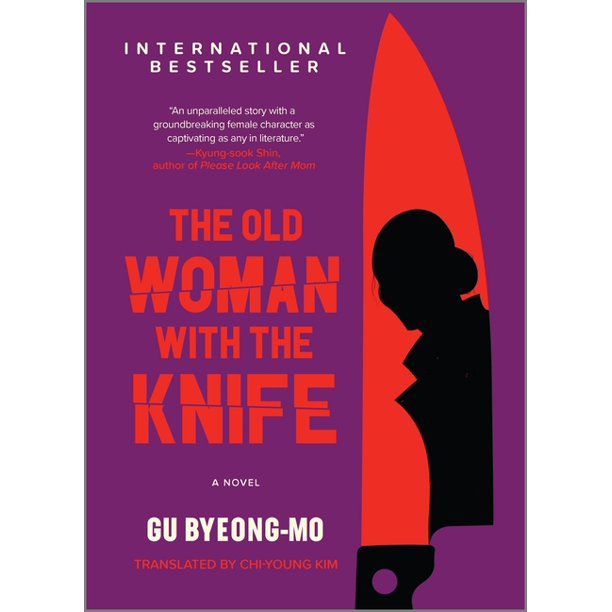 The Old Woman with the Knife: A Novel Posted in: Arts, Curmudgeons and Other Eccentric Characters, Fiction, Mortality, Mysteries and Thrillers, Women’s Lives
The Old Woman with the Knife: A Novel Posted in: Arts, Curmudgeons and Other Eccentric Characters, Fiction, Mortality, Mysteries and Thrillers, Women’s LivesBy Gu Byeong-mo — Hanover Square Press, 2022
It seems ageism in the workplace is rampant, even for contract killers like Horn Claw. At 65, Horn Claw knows she’s not as spry as she once was, but she still gets the job done, even as her co-workers dismiss or even bully her. Born in a small town in South Korea, then abandoned by her birth family, who couldn’t afford another child to raise, Horn Claw has little opportunity to earn a legal income, and she struggles to survive in a society that is cruel to the poor and female. When we meet her, she calls herself a “disease control specialist,” but the vermin she eliminates aren’t rats but unlucky humans, dispatched with a poison-tipped knife. She has lost a hand due to the job but keeps working; she has no friends or social life. Her work is all she knows. With her advancing years, she’s slowing down, is less accurate and is softening. An uncharacteristic sentimental act is a mistake that could prove fatal to this assassin. Will she prevail? We hope so. Gu Byeong-mo is an award-winning, South Korean author. Old Woman with the Knife is her first novel translated into English.
 Oh William!: A Novel Posted in: Arts, Families, Fiction, Midlife Crossings
Oh William!: A Novel Posted in: Arts, Families, Fiction, Midlife CrossingsBy Elizabeth Strout—Random House, 2021
Elizabeth Strout is a favorite of ours. We loved Olive Kitteridge (2008) and My Name is Lucy Barton (2016); now we rejoin Lucy in Oh William!. Newly widowed and a successful writer in her 60s, Lucy has retained an amicable relationship with her first husband, the father of her two daughters. She accepts him now, warts and all, and the warts are not insignificant. But despite Lucy’s investigative nature, she’s yet to fully understand what makes WIlliam tick. The story develops from a newlyweds’ love through Lucy and WIlliam’s divorce over his serial philandering, to Lucy’s satisfying marriage to her second husband, while WIlliam is married and divorced twice more. Yet it’s Lucy whom William asks to join him on a road trip to Maine to investigate his vague ancestry. On the road together, both feeling vulnerable and alone, they have a chance to understand each other on new levels. Their journey is the heart of the novel—a story of regret, reflection, revelation of some surprising family secrets and, ultimately, the way love matures over time.
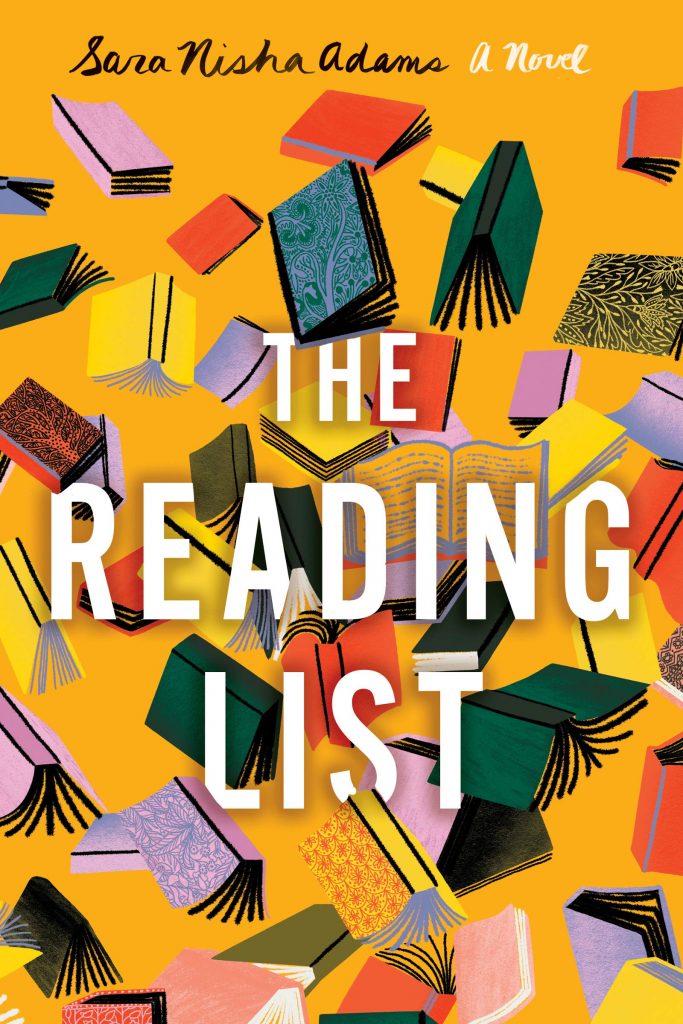 The Reading List Posted in: Arts, Families, Fiction, Friendships
The Reading List Posted in: Arts, Families, Fiction, FriendshipsBy Sara Nisha Adams–WIlliam Morrow, 2021
Aleisha is a disaffected 17-year-old, whose life consists of caring for her mentally ill mother and working at a small library, even though she’s never been much of a reader herself. When she happens upon a scrap of paper listing book titles, “just in case you need it,” she decides to work her way through the suggestions. Weighed down by her own issues, Aleisha is rude to a library patron, Mukesh Patel, a lonely widower living in a London suburb, simply going through the motions of daily life. A dressing down by her supervisor propels Aleisha to apologize to Mukesh and make a recommendation from this secret list. The books’ magic sparks a friendship. Mukesh shares his concerns about his granddaughter Priya’s solitary life, so Aleisha suggests ways for the two to bond, including sharing the book list. But when tragedy strikes Aleisha’s family, she pulls away from the Patels and from reading altogether. Can Mukesh use the life lessons gleaned in the shared pages to bring Aleisha back from despair? The Reading List is a true, book-lover’s book.
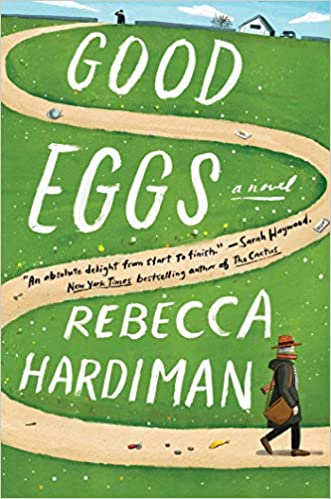 Good Eggs: A Novel Posted in: Arts, Families, Fiction
Good Eggs: A Novel Posted in: Arts, Families, FictionBy Rebecca Hardiman—Atria Books, 2021
Reading Good Eggs felt like listening to an Irish auntie spin a story: a bit of blarney, with the facts sometimes lost in the details. Since her husband died, 83-year-old Millie Gogarty has been living alone. She relies heavily on her unemployed son, Kevin, who is adjusting to being a stay-at-home dad to his four active children, one a real handful. A phone call from the local police interrupts Kevin’s rare escape to the pub; could it be his rebellious teen, AIdeen? No, Millie’s been caught shoplifting—again. Millie’s release is contingent on her accepting the help of a part-time caregiver, something she’s fought tooth and nail. The story takes unexpected, often hilarious turns as these characters hope for second chances. Millie is a spunky piece of work, for certain, but she’s smart, strong-willed and cunning. This is a feel-good story to curl up with. You’ll end up rooting for the whole Gogarty family.
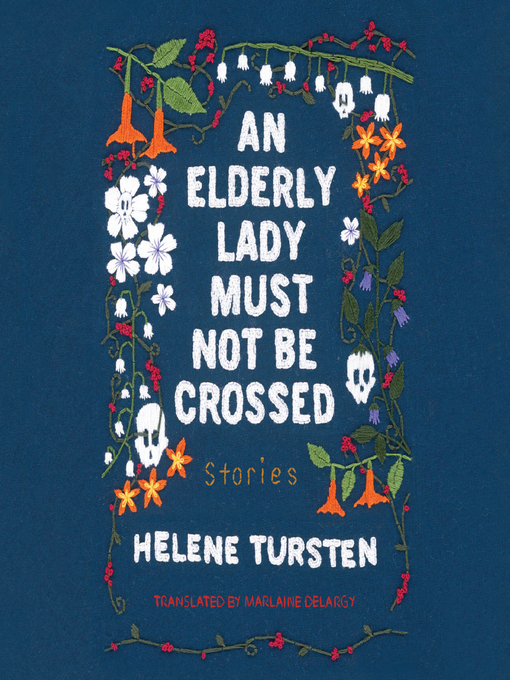 An Elderly Lady Must Not Be Crossed Posted in: Arts, Curmudgeons and Other Eccentric Characters, Fiction, Humor, Mysteries and Thrillers
An Elderly Lady Must Not Be Crossed Posted in: Arts, Curmudgeons and Other Eccentric Characters, Fiction, Humor, Mysteries and ThrillersBy Helene Tursten – Soho Crime, 2021
Add Swedish crime novelist Helene Tursten to your list of go-to Scandinavian authors alongside Fredrik Backman and Jonas Jonasson, both of whom have written books recommended in our reviews. The eponymous elderly lady is our old friend Maud, whom we met in An Elderly Lady Is Up to No Good (2018). Maud’s simple desire is to live her life her way, in peace. Surely, at 88, she’s earned that. Yet Maud, known to resolve disputes by eliminating her adversaries, is followed by misfortune—and the body count around her continues to rise. One simply should not cross Maud, nor underestimate her, nor make assumptions based on her advanced years. Is she really hard of hearing and confused, or is it part of an act to evade the police? That walking stick? It may seem to aid her mobility, but she uses it to bash anyone who gets in her way, which they continually do, at their peril. In this book, Maud is avoiding the police as she heads off on a luxury vacation to South Africa. Her vigilante spirit is revived when she witnesses the assault of a young girl in an alley. Her actions play out in six connected, comical vignettes that expose Maud as a serial killer with a diabolical mind, who will leave you asking yourself if it’s so wrong to root for the bad guy.
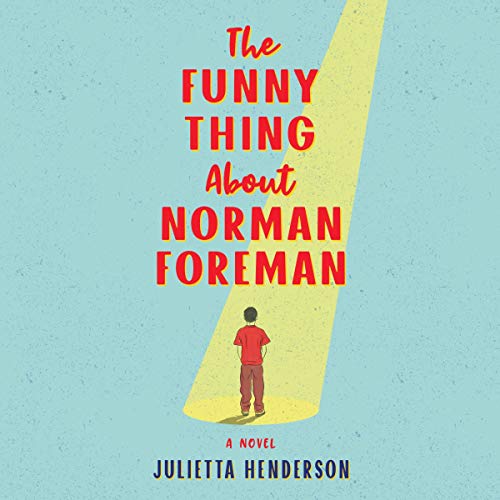 The Funny Thing About Norman Foreman: A Novel Posted in: Arts, Families, Fiction, Friendships
The Funny Thing About Norman Foreman: A Novel Posted in: Arts, Families, Fiction, FriendshipsBy Julietta Henderson—MIRA, 2021
There’s so very much to love about this uplifting, character-driven tale. Norman, age 12, has lost his best friend, Jax, who has died. His adoring mother, Sadie, and her coworker, Leonard, embark on a quest to help Norman fulfill his and Jax’s dream to compete at the country’s premier comedy competition, the Edinburgh Fringe. Friendless without Jax, Norman also decides he needs to find the father he never knew—but his mom isn’t even sure who he is. Sadie, a wounded soul with her own grief, is determined to help Norman process his monumental loss, but it’s only when 80-something Leonard agrees to join the quest that the threesome heads off. Leonard is the brains behind the trip; he brings the common sense, the computer savvy and a lifetime of useful skills, upon which Sadie and Norman draw time and time again. Leonard is the reason we recommend this book; he works as a custodian and bore the brunt of every ageist joke the boss could spew. There’s more to Leonard than meets the eye, but can he find a missing father? Nothing goes strictly according to plan, but throughout the odyssey, Norman Foreman, the “Little Big Man of Comedy,” gets a chance to shine.
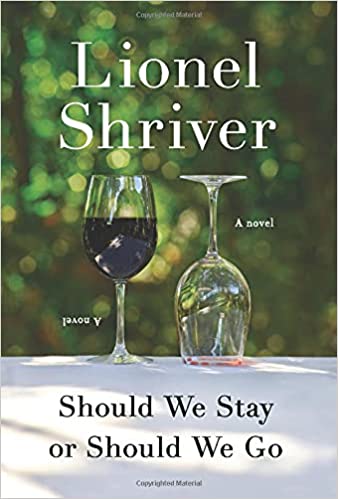 Should We Stay or Should We Go: A Novel Posted in: Arts, Fiction, Midlife Crossings, Mortality
Should We Stay or Should We Go: A Novel Posted in: Arts, Fiction, Midlife Crossings, MortalityBy Lionel Shriver – Harper, 2021
In their 50s, Kay and Cyril both work in health care and have just watched the decade-long, agonizing demise of Kay’s once-brilliant father to Alzheimer’s. With firsthand professional and personal experience of the indignities of aging, they know the sacrifices families make as they stand by helplessly and watch a person die slowly. They make a pact to end their lives, together, at the age of 80. The next three decades pass and, lo, they’re at their use-by date. What happens next is revealed in a dozen different possibilities, brilliantly thought out. In one alternate universe, they end up in residential care where they’re neglected and forgotten; in another, at a posh facility where they’re treated like royalty. In yet another scenario, they choose cryogenics with return when they would be free of disease. But this is not a morbid collection of “what ifs.” It’s a thought-provoking, often humorous read on how we approach death and the choices we make. In other words, perfect for your book club.
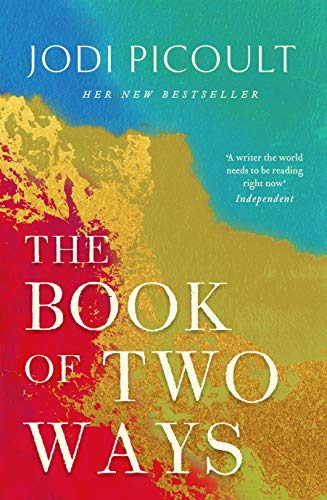 The Book of Two Ways: A Novel Posted in: Arts, Fiction, Midlife Crossings, Mortality
The Book of Two Ways: A Novel Posted in: Arts, Fiction, Midlife Crossings, MortalityBy Jodi Picoult – Ballantine Books, 2020
Death has always been a part of Dawn Edelstein’s life. It began with an early fascination with how ancient Egyptians embraced dying as a part of living. As a grad student in Egyptology, she met Wyatt Armstrong. They shared a passion for The Book of Two Ways, a series of hieroglyphics inscribed inside certain Egyptian coffins that mapped the path of the afterlife. That fervor brought them together romantically, and Dawn felt her life was becoming what it was meant to be. But when she was called to her mother’s death bed, Dawn abruptly found herself taking a different path.
Fifteen years later, she is married to a quantum physicist named Brian, raising a teenage daughter and working as a death doula. She guides clients through the process of dying, easing the transition from life, helping with everything from physical care to last wishes. She loves the work and she loves her family, but a strong connection with a new client stirs up buried memories and desires. She is torn between “what is” and “what if.” What if, after her mother’s death, she’d found a way to rejoin Wyatt in Egypt and resume both her career and their love affair?
The book begins with Dawn surviving a plane crash and questioning her mortality. She knows so much about dying—she just isn’t sure she’s an expert on living, and the time has come to take a good, long look at what is most important in her world. Sprinkled with snippets about Egyptian hieroglyphs and history, this novel will take you deep into the burial chambers of ancient kings and up into the mysteries of death. It will make you think about the path you are on now, and how you’ll feel about your choices when you face the inevitable.
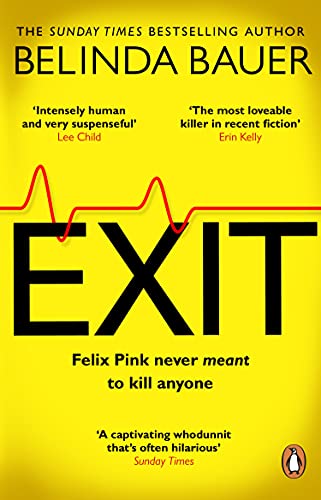 Exit Posted in: Arts, Fiction, Mysteries and Thrillers
Exit Posted in: Arts, Fiction, Mysteries and ThrillersBy Belinda Bauer – Atlantic Monthly Press, 2020
Death is usually a grim subject, but Belinda Bauer’s new mystery is quite funny. Felix Pink, the protagonist of Exit (2020), volunteers as an Exiteer: he’s part of an underground organization that supports people who are terminally ill and have decided to take their own lives. Strictly speaking, nothing Felix does is illegal. He simply sits with clients as they wait to die. They use a painless method suggested by his organization, and he keeps them company so their families will know they’re not alone. Once they’re gone, he spirits away the evidence of suicide. Felix is a 75-year-old widower. He’s kind, conscientious, a neatnik and rule-follower. Most readers will be completely on his side as he goes on one of his missions, only to discover afterward that he’s sat with the wrong person and is implicated in a death that may be a mistake—or a murder. Bauer’s typically twisty mystery provokes lots of chuckles, thanks to her delightfully skewed point of view. And as older readers become privy to Felix’s thoughts about aging, they may wonder if Bauer has been reading their minds.
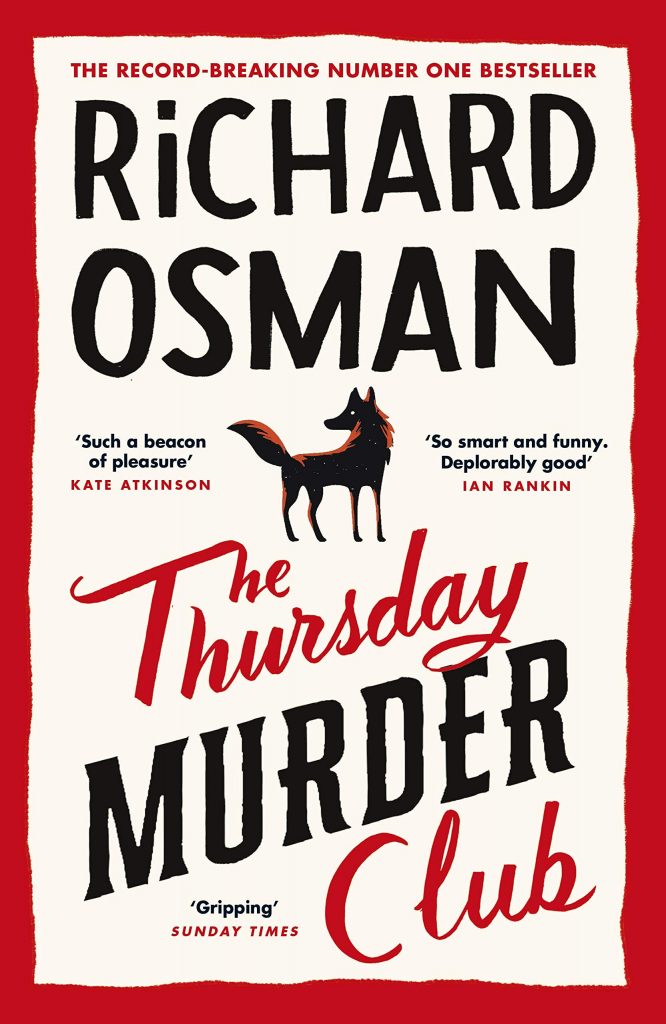 The Thursday Murder Club: A Novel Posted in: Arts, Fiction, Friendships, Mysteries and Thrillers
The Thursday Murder Club: A Novel Posted in: Arts, Fiction, Friendships, Mysteries and ThrillersBy Richard Osman – Pamela Dorman Books, 2020
Every Thursday, four amateur sleuths meet to rehash unsolved crimes. They are an unlikely and quirky foursome: a nurse, a spy, a psychiatrist and a union activist, all residents of the Coopers Chase Retirement Village. Their differences are the strengths they bring to their detective work. To their utter delight, someone is murdered in their midst, a contractor with designs on expanding the community. The Murder Club has a real case! The police underestimate them and, careless about sharing their own knowledge of the crime, are bested by the club members at every turn. This witty whodunnit’s author—a British television celebrity—has depicted the protagonists, all 80 or nearing so, as intelligent and credible, not a feeble, frail or pitiable one among them. This story closes with plenty of room for the Thursday Murder Club to return. Let’s hope someone else gets killed.


